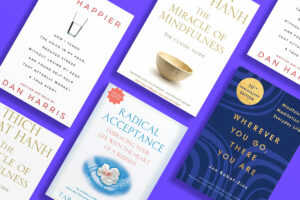
Self-care is essential for maintaining physical, emotional, and mental well-being. It involves activities and practices that you can engage in regularly to reduce stress and enhance your quality of life. In today’s fast-paced world, prioritizing self-care can seem challenging, but incorporating these habits into your daily routine can make a significant difference. Here are some simple self-care practices to help you lead a healthier life.
1. Prioritize Sleep
Getting enough quality sleep is crucial for overall health. It allows your body to repair itself and supports cognitive function and emotional balance.
Action Step
Aim for 7-9 hours of sleep each night. Establish a bedtime routine that includes winding down activities such as reading, meditation, or taking a warm bath. Avoid screens at least an hour before bed to improve sleep quality.
The Importance of Sleep
According to the National Sleep Foundation, adequate sleep is linked to better concentration, improved mood, and a stronger immune system. Lack of sleep, on the other hand, can lead to various health issues, including weight gain, heart disease, and depression. A study from Harvard Medical School also highlights that sleep deprivation can negatively affect your brain function, reducing your ability to process information and retain memories.
Creating a Sleep-Conducive Environment
To ensure a good night’s sleep, your bedroom should be a sanctuary for rest. Keep the room dark, quiet, and cool. Investing in a comfortable mattress and pillows can also make a big difference. Using blackout curtains, earplugs, or white noise machines can help eliminate disturbances.
Recommended Reading:
- Why We Sleep by Matthew Walker: This book delves into the science of sleep and its profound impact on our lives.
- The Sleep Revolution by Arianna Huffington: This book emphasizes the importance of sleep and provides practical tips for improving sleep quality.
2. Eat Nutritious Foods
A balanced diet provides the nutrients your body needs to function correctly and maintain energy levels throughout the day.
Action Step
Incorporate a variety of fruits, vegetables, whole grains, lean proteins, and healthy fats into your meals. Limit the intake of processed foods, sugary drinks, and excessive caffeine.
The Benefits of a Balanced Diet
The World Health Organization (WHO) emphasizes that a healthy diet helps protect against malnutrition in all its forms, as well as non-communicable diseases (NCDs) such as diabetes, heart disease, stroke, and cancer. Consuming a diverse range of nutrients supports bodily functions and overall well-being. Moreover, studies show that a diet rich in fruits and vegetables can enhance mood and reduce the risk of depression.
Mindful Eating Practices
Mindful eating involves paying full attention to the experience of eating and drinking. It’s about noticing the colors, smells, textures, flavors, temperatures, and even the sounds (crunch!) of your food. It also means being aware of the thoughts and feelings you have about the food you are eating. Practicing mindful eating can help you develop a healthier relationship with food, preventing overeating and fostering better digestion.
Recommended Reading:
- How Not to Die by Michael Greger: This book examines how proper nutrition can prevent and reverse disease.
- In Defense of Food by Michael Pollan: This book offers a simple manifesto for eating healthy: “Eat food, not too much, mostly plants.”
3. Exercise Regularly
Physical activity is essential for maintaining physical health, reducing stress, and improving mood.
Action Step
Engage in at least 30 minutes of moderate-intensity exercise most days of the week. This can include activities such as walking, cycling, yoga, or dancing. Find an exercise routine that you enjoy to make it a sustainable habit.
The Impact of Exercise
The Mayo Clinic states that regular exercise can help prevent or manage many health problems, including stroke, high blood pressure, type 2 diabetes, depression, anxiety, and many types of cancer. It also boosts mood, energy, and overall quality of life. Exercise releases endorphins, which are chemicals in the brain that act as natural painkillers and mood elevators.
Incorporating Movement into Daily Life
In addition to scheduled workouts, try to incorporate more movement into your daily routine. Take the stairs instead of the elevator, walk or cycle to nearby destinations instead of driving, and take short breaks to stretch during long periods of sitting.
Recommended Reading:
- Spark: The Revolutionary New Science of Exercise and the Brain by John J. Ratey: This book explores how exercise can boost brain function and overall well-being.
- You Are Your Own Gym by Mark Lauren: This book provides bodyweight exercises that can be done anywhere without the need for a gym.
4. Practice Mindfulness and Meditation
Mindfulness and meditation help reduce stress, improve focus, and enhance emotional well-being.
Action Step
Incorporate mindfulness practices such as deep breathing, meditation, or mindful walking into your daily routine. Apps like Headspace and Calm can provide guided sessions to help you get started.
Benefits of Mindfulness
Research published in the journal Psychological Science shows that mindfulness can improve attention, reduce rumination, and enhance emotional regulation. These practices contribute to lower stress levels and greater overall mental health. Additionally, mindfulness has been shown to reduce symptoms of anxiety and depression, making it a powerful tool for mental health.
Starting a Meditation Practice
If you are new to meditation, start with just a few minutes each day. Find a quiet space where you won’t be disturbed, sit comfortably, and focus on your breath. When your mind wanders, gently bring your attention back to your breathing. Gradually increase the time as you become more comfortable with the practice.
Recommended Reading:
- The Miracle of Mindfulness by Thich Nhat Hanh: This book offers practical advice on how to bring mindfulness into everyday life.
- Wherever You Go, There You Are by Jon Kabat-Zinn: This book explores the principles of mindfulness and how to incorporate them into daily routines.
5. Stay Hydrated
Drinking enough water is vital for maintaining bodily functions and energy levels.
Action Step
Aim to drink at least 8 glasses of water a day. Carry a reusable water bottle with you to encourage regular hydration. Monitor your hydration by checking the color of your urine; it should be light yellow.
The Importance of Hydration
According to the Mayo Clinic, proper hydration helps regulate body temperature, keeps joints lubricated, prevents infections, delivers nutrients to cells, and keeps organs functioning properly. Being well-hydrated also improves sleep quality, cognition, and mood.
Tips for Staying Hydrated
To ensure you drink enough water, try infusing your water with natural flavors like lemon, cucumber, or mint to make it more enjoyable. Set reminders on your phone to drink water throughout the day, and try to drink a glass of water before each meal to stay hydrated.
Recommended Reading:
- Quench: Beat Fatigue, Drop Weight, and Heal Your Body Through the New Science of Optimum Hydration by Dana Cohen and Gina Bria: This book explores the science of hydration and provides practical tips for staying hydrated.
6. Connect with Loved Ones
Maintaining strong relationships is essential for emotional health and can provide support during challenging times.
Action Step
Schedule regular catch-ups with friends and family, whether in person, over the phone, or via video calls. Engage in activities that you enjoy together to strengthen your bonds.
The Power of Social Connections
The Harvard Study of Adult Development found that strong social connections are one of the most significant predictors of happiness and longevity. Positive relationships help reduce stress, foster emotional well-being, and provide a support system in times of need.
Building and Maintaining Relationships
To build and maintain strong relationships, practice active listening, and show genuine interest in others. Make an effort to stay in touch regularly and be present during interactions. Express appreciation and gratitude for the people in your life.
Recommended Reading:
- How to Win Friends and Influence People by Dale Carnegie: This classic book offers timeless advice on building and maintaining strong relationships.
- The Art of Gathering by Priya Parker: This book explores how to create meaningful connections through gatherings and social interactions.
7. Take Breaks and Relax
Taking regular breaks and engaging in relaxing activities is vital for preventing burnout and maintaining mental health.
Action Step
Incorporate short breaks into your daily routine, especially during work or study sessions. Practice relaxation techniques such as deep breathing, stretching, or listening to music.
Benefits of Taking Breaks
According to the American Psychological Association, taking breaks can improve mental clarity, reduce stress, and increase productivity. Regular relaxation helps recharge your mind and body, enabling you to return to your tasks with renewed focus.
Effective Break Strategies
Consider the Pomodoro Technique, which involves working for 25 minutes and then taking a 5-minute break. After four cycles, take a longer break of 15-30 minutes. This technique can enhance productivity and ensure you take regular breaks.
Recommended Reading:
- Rest: Why You Get More Done When You Work Less by Alex Soojung-Kim Pang: This book explores the importance of rest and how it can boost productivity and creativity.
- The Power of Rest by Matthew Edlund: This book provides practical advice on how to incorporate rest and relaxation into your daily routine.
8. Engage in Hobbies
Pursuing hobbies that you enjoy can provide a sense of accomplishment and relaxation.
Action Step
Dedicate time each week to engage in activities that you love, such as painting, gardening, reading, or playing a musical instrument.
The Role of Hobbies in Well-Being
Engaging in hobbies can enhance creativity, reduce stress, and improve mood. A study published in the Journal of Occupational and Organizational Psychology found that leisure activities can significantly boost overall life satisfaction and mental health. Hobbies provide a break from routine tasks and offer opportunities for personal growth and social interaction.
Finding a New Hobby
If you’re unsure what hobbies to pursue, consider exploring different activities until you find something that resonates with you. Joining local clubs or online communities can also provide opportunities to learn and connect with others who share similar interests.
Recommended Reading:
- The Happiness Project by Gretchen Rubin: This book explores the author’s year-long journey to discover the practices that make life happier, including engaging in hobbies.
- Big Magic: Creative Living Beyond Fear by Elizabeth Gilbert: This book encourages readers to embrace their creativity and pursue hobbies without fear.
9. Limit Screen Time
Excessive screen time can lead to eye strain, poor posture, and disrupted sleep patterns.
Action Step
Set limits on your daily screen time, especially for non-essential activities. Use tools and apps to monitor and control your screen usage. Ensure you take regular breaks to rest your eyes and stretch your body.
Impact of Reducing Screen Time
Reducing screen time can improve sleep quality, enhance focus, and reduce the risk of digital eye strain. The American Academy of Pediatrics suggests creating tech-free zones and times, especially during meals and before bedtime.
Healthy Screen Time Habits
Adopt the 20-20-20 rule to prevent eye strain: every 20 minutes, look at something 20 feet away for at least 20 seconds. Also, try to keep screens out of the bedroom to promote better sleep hygiene.
Recommended Reading:
- Digital Minimalism: Choosing a Focused Life in a Noisy World by Cal Newport: This book provides insights into how to reduce screen time and focus on meaningful activities.
- How to Break Up with Your Phone by Catherine Price: This book offers a practical plan to reduce phone addiction and reclaim your time.
10. Seek Professional Help When Needed
Recognizing when you need professional help is a crucial aspect of self-care.
Action Step
Don’t hesitate to seek help from healthcare professionals, therapists, or counselors if you are struggling with physical or mental health issues. Regular check-ups and preventive care are also important.
The Importance of Professional Support
According to the World Health Organization, early intervention and support from healthcare professionals can significantly improve outcomes for a wide range of health conditions. Professional help provides access to expertise and resources that can aid in managing and overcoming health challenges.
Finding the Right Professional Help
When seeking professional help, it’s important to find a provider you feel comfortable with. Don’t hesitate to ask for recommendations, read reviews, and consult with multiple professionals if needed. Remember that seeking help is a sign of strength, not weakness.
Recommended Reading:
- Maybe You Should Talk to Someone by Lori Gottlieb: This memoir by a therapist offers insights into the therapeutic process and the benefits of seeking professional help.
- The Body Keeps the Score by Bessel van der Kolk: This book explores how trauma affects the body and mind and highlights the importance of professional treatment.
Conclusion
Incorporating these simple self-care practices into your daily routine can significantly enhance your physical, emotional, and mental well-being. Prioritize sleep, eat nutritious foods, exercise regularly, practice mindfulness, stay hydrated, connect with loved ones, take breaks, engage in hobbies, limit screen time, and seek professional help when needed. By committing to these habits, you can lead a healthier, happier life.
For more tips and insights on self-care and personal growth, consider exploring book summaries from services like BookBits. By nurturing these practices, you’re setting the foundation for a lifetime of well-being and fulfillment.
Key Self-Care Resources
- Headspace: Headspace
- Calm: Calm
- Mayo Clinic: Mayo Clinic
- World Health Organization (WHO): WHO
- Harvard Study of Adult Development: Harvard Study
By following these self-care habits and leveraging the right tools and resources, you can create a solid foundation for a healthier and happier life.


